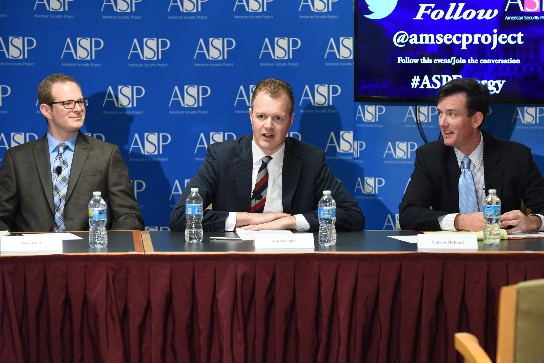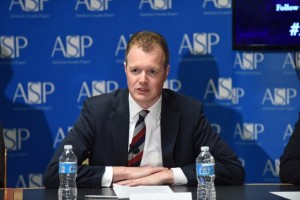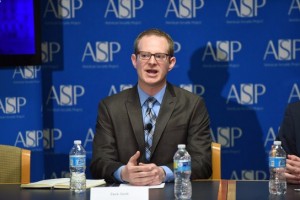
Geopolitics of Energy in the Eastern Mediterranean: Panel 1 Recap
Podcast: Play in new window | Download
Subscribe: Apple Podcasts | RSS
In ASP’s Geopolitics of Energy Security in the Eastern Mediterranean event’s first panel, ASP hosted Tim Boersma, Director of the Brookings Institution’s Energy and Security Climate Initiative and Zack Gold, ASP Adjunct Fellow and Visiting Fellow for the Institute for National Security Studies in Tel Aviv. Andrew Holland, ASP’s Senior Fellow for Energy & Climate, moderated the panel. The panel laid the groundwork for the rest of the event, discussing the current geopolitical atmosphere regarding Eastern Mediterranean Energy. ASP CEO BGen Stephen Cheney, USMC (Ret.) opened the event.
Tim Boersma spoke first, saying energy issues in the Eastern Mediterranean have received “very significant attention” in recent years. Focusing on Israel, he cited domestic politics as a “major factor” in shaping the country’s energy outlook. While the discovery of gas fields may have resolved Israel’s energy problems internationally, it opened up an entirely new series of debates domestically. The discovery of the Tamar and Leviathan fields galvanized debates about raising the country’s energy tax and reexamining their export policy. Boersma summarized the Israeli domestic situation with respect to energy:
“Domestic politics has greatly complicated the development of gas discoveries in Israel. It is uncertain when and whether Leviathan will be developed. Complex political relations in the region also complicate matters greatly in terms of the development and extractive distribution of resources.”
Zack Gold spoke next on the prospects for energy in promoting regional stability, particularly between Egypt and Israel. He opened optimistically:
“In terms of economics, it’s cost effective to export energy to the region. It simply makes sense to export to your neighbors when you’re a gas producing state and they are giant energy producing companies.”
Gold noted, however, that “economic interests don’t always defeat political interests.” This is especially true concerning Egyptian-Israeli relations, with the two countries having a complicated past. Regardless of past relations, the need to protect existing energy infrastructure is present. Gold cited the attacks on the Sinai pipeline, which travels from Egypt to Israel and Jordan, as an example. This is one example of what Gold called “burdens that will be shared.”
Additionally, the Tamar and Leviathan fields may bolster Israel’s regional influence moving forward. Gold stated:
“Israel’s interest sale of natural gas is more than simply financial. They want influence in region, and this push has often been led by Israel’s business community.”







